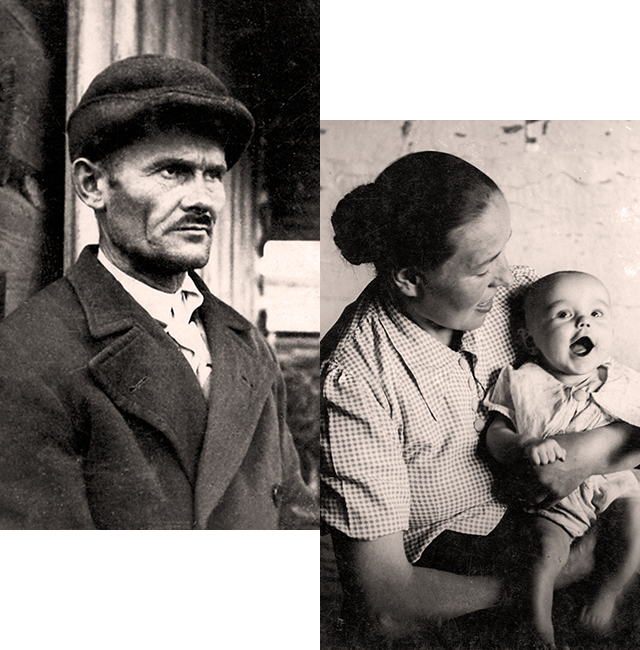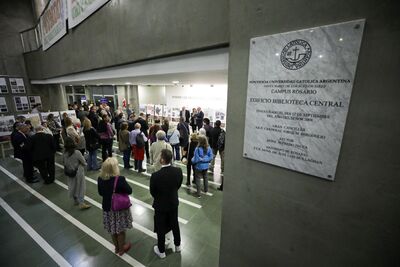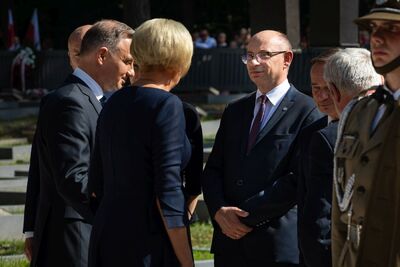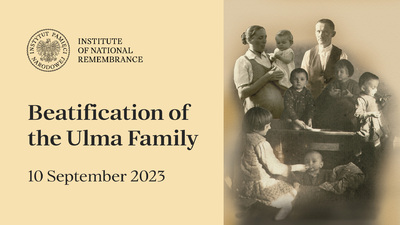Józef and Wiktoria were born in Markowa, grew up there and married in 1935 in the parish church of St Dorothea. In their home village, they were viewed as honest, hard-working, devout and passionate people. Wiktoria took care of the house and children and was also active in the amateur village theatre. Józef was a farmer and an activist of the Catholic Men's Youth Association and the Polish Rural Youth Union "Wici". He worked as a horticulturist, beekeeper and silkworm breeder, achieving successes in these fields. His greatest passion, however, was photography, richly illustrating the life of his family and the people of Markowa.
Timeline
-
1995
Wiktoria and Józef Ulma were awarded the title of Righteous Among the Nations by the Yad Vashem
-
2003
start of the beatification process of the Ulma family
-
2004
a memorial commemorating the Ulma family was unveiled in Markowa
-
2010
Wiktoria and Józef Ulma were awarded by the President of the Republic of Poland Lech Kaczyński with the Commander's Cross of the Order of Polonia Restituta
-
2016
opening of the Ulma Family Museum in Markowa
-
2018
On the initiative of President Andrzej Duda, the day of the death of the Ulma, Goldman, Grünfeld and Didner families - 24 March - was established as the National Day of Remembrance of Poles Who Saved Jews Under German Occupation.
-
10 September 2023
beatification of the Ulma family
Hard-working and passionate couple
Markowa through Józef's lens
Józef Ulma was a gardener and community activist. As an amateur photographer, he documented the life of his home, Markowa – one of the villages in the Subcarpathian region.
The History of Markowa
Today Markowa is a village and municipality in the Podkarpackie Voivodeship. As a village it was founded in the mid-14th century, during the reign of Casimir the Great, when German settlers were brought there. Polonisation of the language took place in the 16th and 17th centuries, and Polish national consciousness fully developed in the 19th century.
The settlement was big and relatively prosperous. The giving of land to local people and the introduction of self-government in the second half of the nineteenth century developed their ability to look after the affairs of the community themselves. In the late nineteenth and early twentieth centuries, Markowa became one of the pioneers of co-operatives in the Polish countryside.
Supposedly in December 1942, the Ulmas had decided to help eight Jews. They hid them in their own home until March 1944.
By hosting them in their home, they were aware of the enormous risk.
Helping the Jewish population in German-occupied Polish territories was punishable by death.
Despite the widespread terror, fear and limited material resources, the Ulmas bore witness to the fact that a person, in the name of evangelical love of a neighbor, is willing to overcome fear and even risk his own life.



